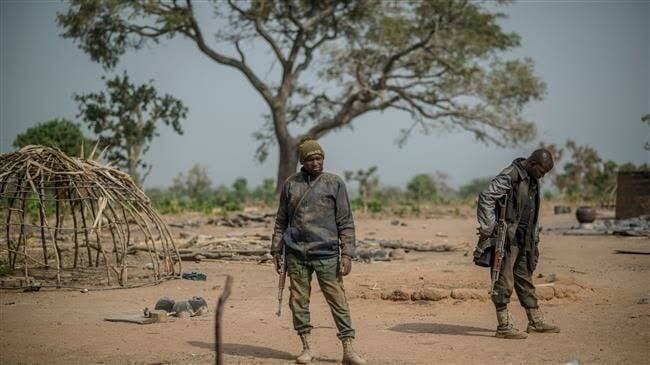No Negotiations With Terrorists, They’re Unreliable – Nigerian Govt
Nigerian Government has insisted it would not enter into any negotiation with terrorists attacking many parts of the country.

Babagana Monguno, Nigeria’s National Security Adviser (NSA), says the Nigerian Government will not negotiate with the terrorists operating in the North-central and Northwest regions of the country.
Nigerian President Muhammadu Buhari has, earlier in Feb., ruled out the possibility of the negotiations and rejected amnesty for terrorists in the region.
Governors of Kaduna, Niger and Katsina States had also rejected the calls for amnesty and negotiations by the Islamic cleric, Ahmad Gumi, citing their unreliability.
According to the Federal Government, there were many phases of conflict response and the time to apply full force on the terrorists was on the road.
The government said it was ready to apply necessary military and intelligence apparatus to curtail the lingering insecurity in the Northwestern and North-central parts of Nigeria.
Speaking to journalists in Aso Rock on Thursday, Monguno said negotiating with the terrorists would give the impression that the Federal Government was weak.
“The government is tackling the problem of insecurity, we’ve said this many times that there are two phases in solving this problem –the soft approach: talking, negotiating, and so on and so forth,” he said.
“While the government is not averse to talking to these entities, these human beings, I have to be very honest, the government has to apply its weight, that force that is required because you can’t even talk with people who are unreliable, who will turn out to do a different thing and people who will continue to hurt society.”
“So, basically, what the government wants to rely upon is to deal with this issue by using all the assets – military assets, intelligence assets to eliminate these people.”
“If along the line, some of them are ready to come out and talk and negotiate, when the time comes, we will do that but for now, we can’t keep on dwelling on ‘Let’s dialogue.”
“Psychologically, dialogue is not even good for us, it paints the picture of weakness, it paints the picture of incapacity and I, just like the governor of Kaduna State said, do not see any reason why we cannot, with what we have, deal with these elements.”
Support Our Journalism
There are millions of ordinary people affected by conflict in Africa whose stories are missing in the mainstream media. HumAngle is determined to tell those challenging and under-reported stories, hoping that the people impacted by these conflicts will find the safety and security they deserve.
To ensure that we continue to provide public service coverage, we have a small favour to ask you. We want you to be part of our journalistic endeavour by contributing a token to us.
Your donation will further promote a robust, free, and independent media.
Donate HereStay Closer To The Stories That Matter




